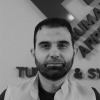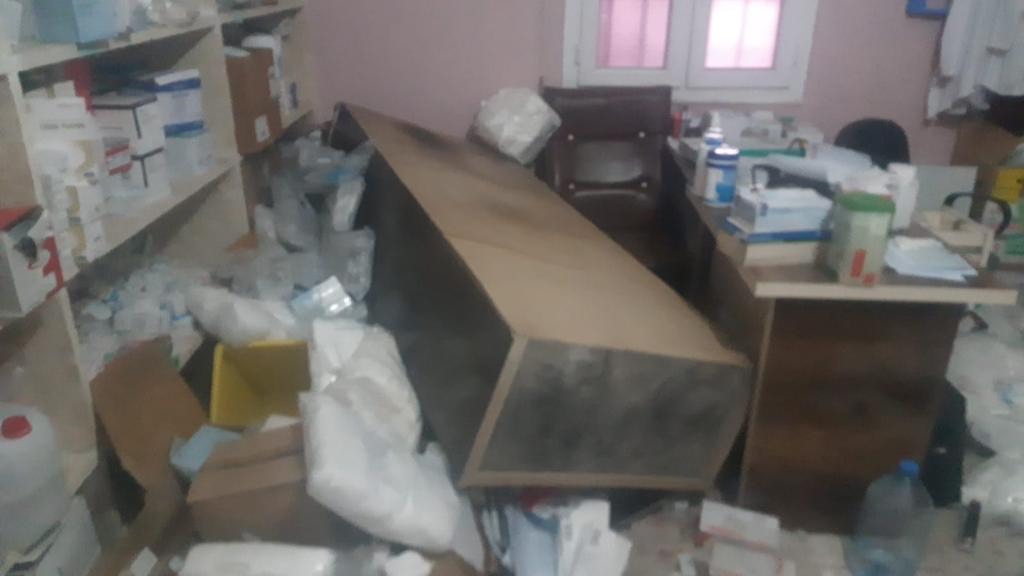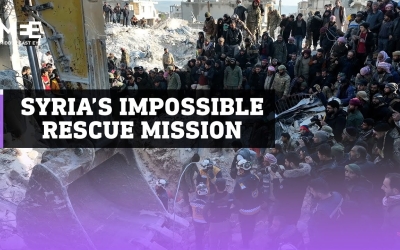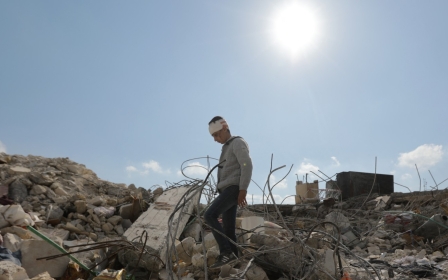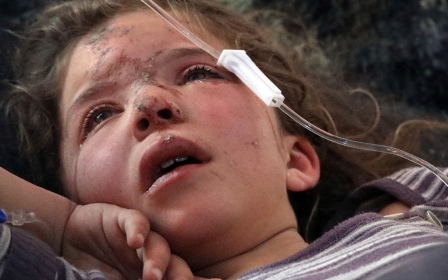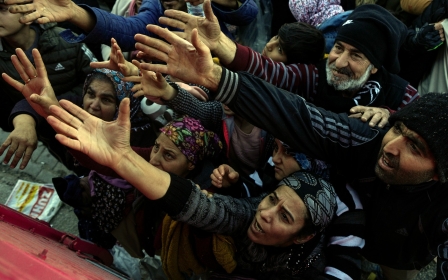Turkey-Syria earthquake: 'When the dust settles, we urge you not to forget us'
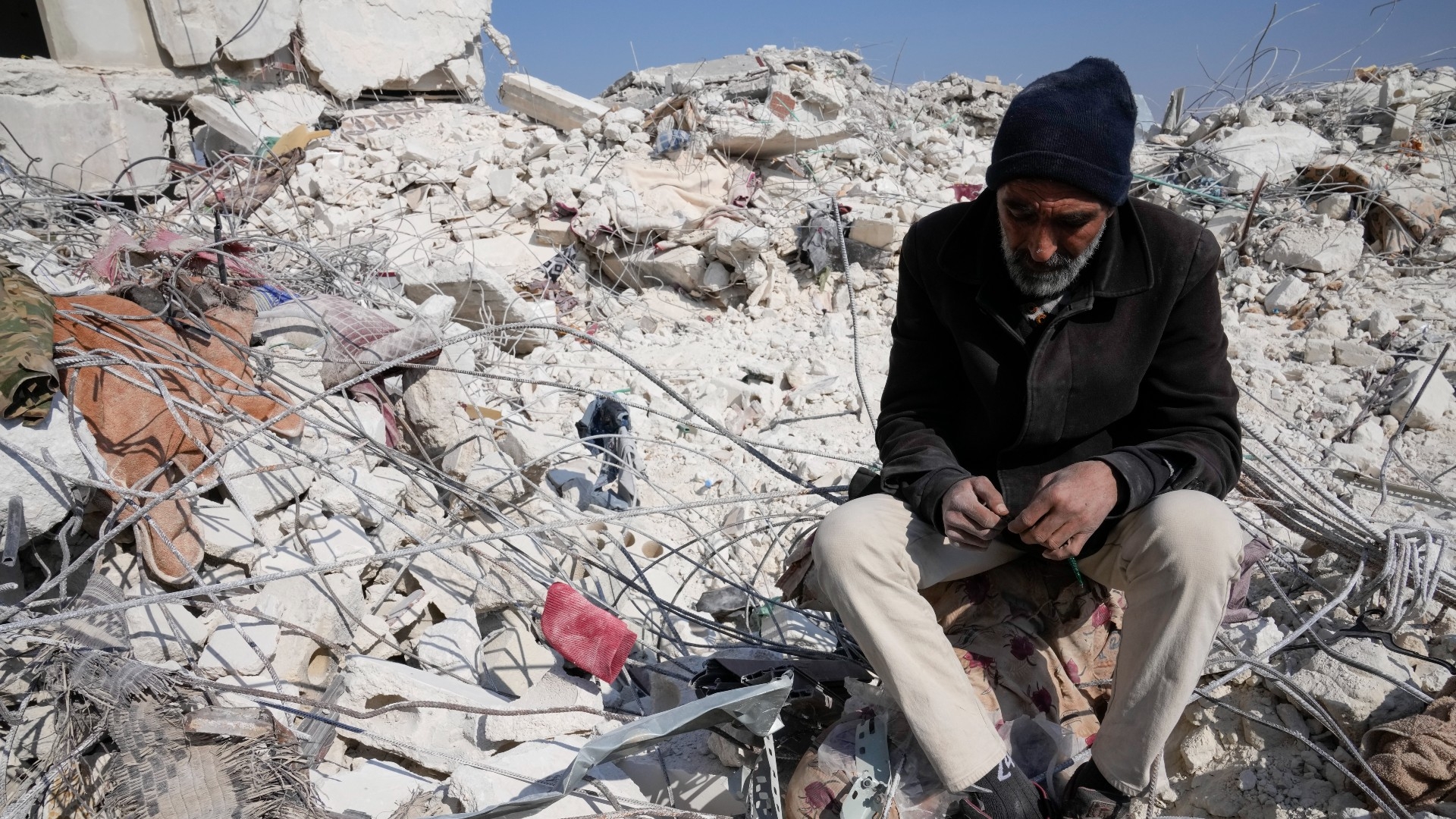
I awoke at 4am (01.00 GMT) to the walls of my bedroom trembling. I swiftly gathered my wife and children and we hurried out of our home, walking into a downpour of rain, which landed on the snow that had accumulated over the last few days. We sought refuge outside as the next tremor came.
It may be some time before we fully grasp the level of destruction of this earthquake
Before our eyes, our home and the surrounding buildings collapsed. But we couldn’t stop moving until we reached and got into our car for safety.
At the same time, just across the border in Syria, my colleague was performing a C-section in Human Appeal’s Al Imaan Hospital in Idlib.
Just as the newborn baby was being delivered, the walls of the hospital began to shake, and a cupboard crashed to the floor of the delivery room. This was an unprecedented situation and our team rushed the new mother and child outside, knowing in that terrifying moment that they would be safer in the bitter winter air than inside the walls of the hospital.
New MEE newsletter: Jerusalem Dispatch
Sign up to get the latest insights and analysis on Israel-Palestine, alongside Turkey Unpacked and other MEE newsletters
I have not yet been able to return to the hospital - located a short distance from where my family and I are now living in our car in Turkey. The roads were badly damaged in the earthquake, but miraculously the internet connection still works and I have been able to stay in constant contact.
Rebuilding seems so far off
Some of my colleagues have lost family or homes, but they continue their work in the hospital which still stands despite the damage it sustained, including walls that have crumbled, cabinets and other fixtures that have toppled to the ground, and the equipment and medicine in disarray.
Their work is twofold: restoring the hospital to safety and order while providing any treatment they can to the sick and injured following the catastrophe.
One week after the earthquake and babies are still being born in the Al Imaan Hospital. My brothers and father are on the other side of the border from me, across the way in Syria, 10 years of conflict and a war-torn country mean that I do not take my children with me when I return to Idlib to continue my work as a doctor.
Like so many families we have left the conflict behind, but I cannot leave Syria and so continue my work as a doctor there, providing medical care to those still living in my homeland. And I fear for them, Syria does not have the infrastructure that Turkey does.
It will not and cannot rebuild in the way Turkey can, the echoes and consequences of this disaster will be felt long after the dust has subsided.
In Syria we also do not have access to the heavy machinery needed to lift the rubble and save the families, the children and adults trapped underneath. We desperately need these tools and equipment.
The cold winter has made the ground hard and digging impossible by hand. The roads are damaged and we are having trouble getting supplies through.
Rebuilding feels so far off. Aid organisations like Human Appeal have jumped into action, distributing food daily. Though the rescue effort continues, here in Turkey, we need more too.
A generation in shock
Families and survivors shelter where they can. Emergency shelter centres have been established in empty halls and gymnasiums, filled with blankets, and with a roof and walls to shield people from the cold. But for many families, like my own, the risk of being inside of a building feels too great.
Makeshift tents, erected from found material and broken buildings, fill the parks and land, wherever people can find space. They do little to shelter from the freezing temperatures and rain, but they somehow feel safer than being inside. Those who can have driven away to the safe regions of Turkey and are staying with family.
My own family remains with me in the car. My daughters, still in shock from the earthquake, prefer to sleep and live there for now, until they can feel safe again indoors.
As a doctor, this is what I need people to understand the most: with rescue and recovery workers working around the clock, digging for bodies beneath the rubble, it may be some time before we fully grasp the level of destruction of this earthquake. Thirty three thousand men, children and infants have so far been reported to have lost their lives. Hundreds of thousands are injured and, like my family, have lost their home.
We will rebuild inshallah (God willing), but the trauma of this moment will live on. Thankfully, in just over 100 hours since the first earthquake, Human Appeal was the first to offer displaced Syrians who lost their homes in the earthquake 1,000 houses in its Al Zohoor town project in northwest Syria.
Still, both children and adult survivors will suffer from post-traumatic stress disorder. They will carry this year with them forever.
The time to act is now. The global community must come together to relieve the immediate suffering of the people of Turkey and Syria; sponsor the equipment they need to continue to rescue those trapped; support food distribution efforts; and help Al Imaan Hospital continue its vital work to provide healthcare and emergency medical attention while it rebuilds.
But when the dust settles, we urge you to not forget about us, we will need your help to rebuild our homes, and preserve our health today and tomorrow.
The views expressed in this article belong to the author and do not necessarily reflect the editorial policy of Middle East Eye.
Middle East Eye delivers independent and unrivalled coverage and analysis of the Middle East, North Africa and beyond. To learn more about republishing this content and the associated fees, please fill out this form. More about MEE can be found here.


